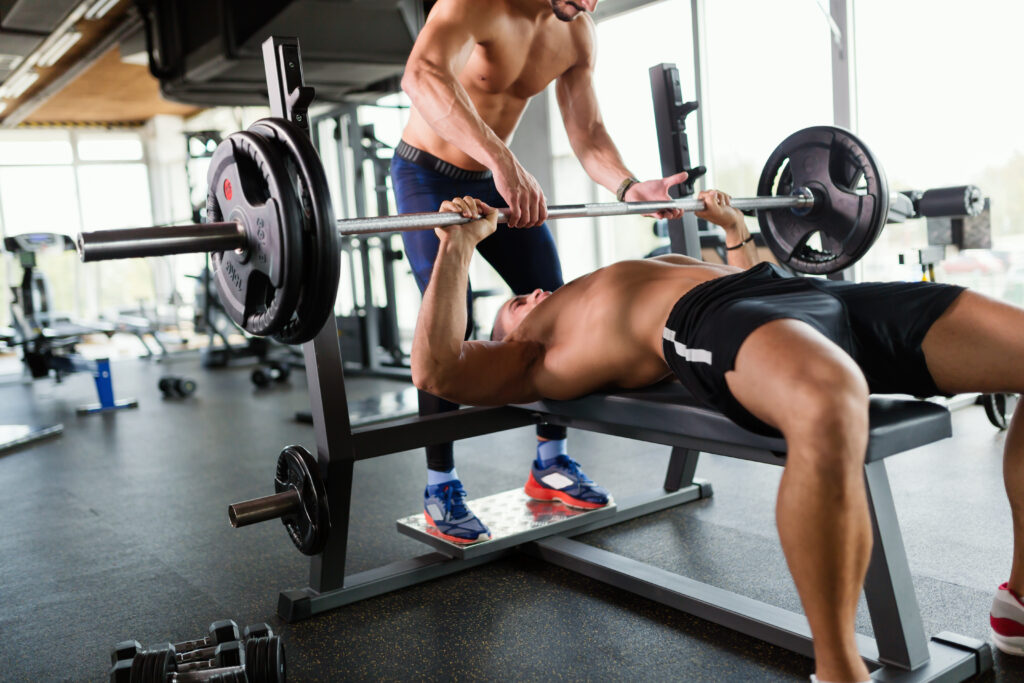
Weightlifters obsess about every move as they’re performing a lift. In complex, compound movements like a deadlift, one’s feet spacing, hip and knee angle, and back posture all figure into a successful injury free rep.
Have you ever thought about how much your vision plays a role in helping you achieve the best form for a safe rep? Visualizing our bodies in space allows us to “see” our form, helping us achieve safe body posture, allowing us to push our bodies to the max.
Further, just as sore quads from yesterday’s workout would affect your lift, could stressed and overworked eyes affect athletic performance as well?
We know too much stress can lead to a number of issues for our eyes, like eye fatigue, inability to focus, or even Visual Burnout. But visual issues don’t end there. Too much visual stress can affect your athletic pursuits, your workouts and your lifting performance.
During the pandemic, our eyes have been more stressed and overworked than ever. There has been a dramatic increase in the amount of time we have spent on our phones, in Zoom meetings, on Facetime, or binge watching our favorite shows.
The more time we spend overworking our eyes without taking breaks or the other proper steps to maintain eye health, the quicker our eyes begin to tire, inhibiting top performance.
“Our eyes can easily get exhausted and overwhelmed by the amount of information they’re constantly processing,” Juliet Machado, Certified Optometric Vision Therapist, said.
As our eyes experience stress and become exhausted, we encounter numerous issues. Our peripheral field of vision shrinks, causing problems with movement in space. Our reaction time slows. We can struggle to read, struggle to think clearly, and even struggle to make good decisions.
Our visual spatial abilities are really affected by visual stress, which can be especially damaging when we’re trying to focus on a challenging task, like a one-rep max.
Dr. Bruce Wojciechowski, Doctor of Optometry and Founding Partner of Northwest Eye Care Professionals in Oregon, said that many times a person will experience a visual challenge when experiencing anxiety, which can exacerbate the problem, as the two negatively feed off each other.
“With stress, we struggle to perform at our best,” Machado said. “We want to teach people how to calm the stress to increase performance.”
Machado said this can look like breathing exercises, visualizing a “happy place”, or even a quick five-second meditation.
“In the moment of a competitive weightlifting event you don’t have time to do a full five minute visual relaxation,” Machado said. “Vision therapy activities help you develop a plan to quickly and effectively manage your anxiety in the moment, leading to enhanced visual performance, and improved confidence in everyday life.”
Machado said that patients can improve and enhance these abilities because the therapy is designed to “build performance over demand” – meaning the training challenges people at a level above what they may need for regular day-to-day tasks or during high stress competitions.
Wojciechowski uses the analogy of Kobe Bryant’s youth basketball program.
“In Kobe’s program, he’d have these young kids dribbling two basketballs, one in each hand. These kids won’t be dribbling two basketballs in a game, but they’ll get so good at dribbling two that dribbling one will be a breeze.” Wojciechowski said. “In therapy, we’re having patients ‘dribble two basketballs’, so they can be able to ‘dribble one basketball’, even under stress.”
We may not be able to manage the visual demands of life, but by training the brain, through the visual system, to perform under pressure, you can develop the tools you need to achieve your maximum potential, no matter the circumstances.
Praxi is Vision Therapy experience in VR and on mobile devices designed to relax your eyes and neuro-visual pathways to restore you to a rested and relaxed state of focus. Through various exercises, you will train your visual system, learning skills such as improving your focus, improving your reaction time, opening up your depth of vision, and increasing your peripheral vision.

